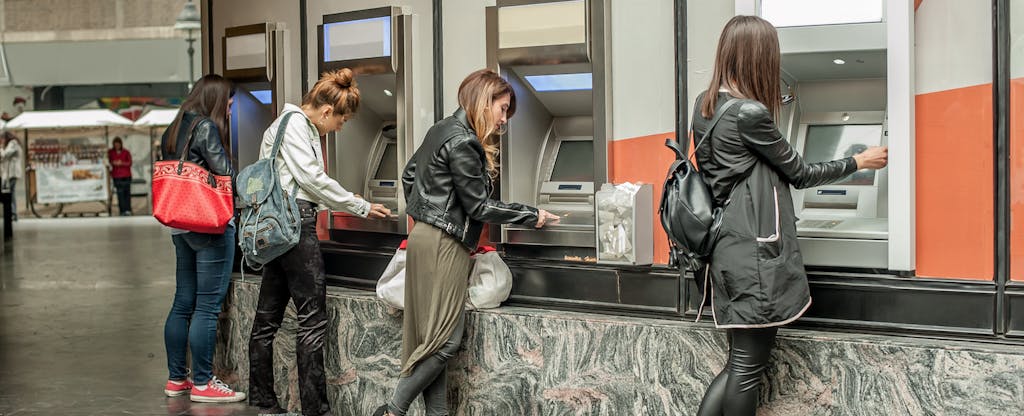In a Nutshell
Most financial institutions close for federal holidays, which can limit banking on those days. You can prepare for bank holidays by noting them on your calendar, using an ATM, banking online or setting up automatic payments.Federal banks — and many private banks — are closed on federal holidays, which can delay transactions and limit in-person services. But even if your local branch is closed, you may still have options to get your banking done.
If a bank is closed for a holiday, any transactions you make — including deposits, bill payments and bank-to-bank transfers — likely won’t process until the next business day. You won’t be able to use in-person services, and depending on the bank, customer service might also be limited.
In this article, we’ll go over the bank holidays and what you can do if your bank is closed.
- What is a bank holiday?
- What are the U.S. federal holidays?
- What to do if your bank is closed
- Paying bills on a bank holiday
What is a bank holiday?
Bank holidays are business days when financial institutions close, usually to observe a federal holiday. This includes all federal banks and branches as well as some private banks.
Whenever a federal holiday falls on a Saturday, Federal Reserve banks and branches are typically open the Friday before. But if a holiday falls on a Sunday, they’ll usually be closed the following Monday.
Private banks can choose to close on federal holidays. If you aren’t sure if your bank will be closed on a particular day, you can try calling ahead or checking online. Some banks also provide a holiday schedule on their website for customers to reference.
What are the U.S. federal holidays?
The Federal Reserve System observes 11 federal holidays each year. Five of these holidays — Martin Luther King Jr. Day, Memorial Day, Labor Day, Washington’s Birthday (Presidents Day) and Columbus Day — are always observed on a Monday, so their exact date varies year by year. The date for Thanksgiving also varies because it’s always observed on the fourth Thursday of November.
Federal bank holidays for 2023
| Federal holiday | 2023 |
|---|---|
| New Year’s Day | January 1** |
| Martin Luther King Jr. Day | January 16 |
| Washington’s Birthday | February 20 |
| Memorial Day | May 29 |
| Juneteenth National Independence Day | June 19 |
| Independence Day | July 4 |
| Labor Day | September 4 |
| Columbus Day | October 9 |
| Veterans Day | November 11* |
| Thanksgiving Day | November 23 |
| Christmas Day | December 25 |
What to do if your bank is closed
First, it’s a good idea to mark bank holidays on your calendar as a reminder to take care of any urgent or in-person banking in advance. This can save you the frustration of a wasted trip to your local branch and help you avoid late payment fees.
But what if doing your banking before or after a holiday won’t work for you? Let’s take a look at some of your other options.
- Use an ATM. Even on bank holidays, you should be able to use an ATM to check your account balance or withdraw cash. Many banks — such as Wells Fargo, Chase and Bank of America — offer ATMs that are open 24 hours.
- Bank online. You may be able to accomplish some banking, like opening a new account or scheduling a transfer, via your bank’s website or mobile app. Be careful though — even some online banks don’t process transactions on federal holidays.
- Try a payment app. Apps like Venmo or Paypal allow you to send and receive money from peers and shop online or in stores. Other ways to send money online when your bank may not be an option include Cash App, Apple Pay and Western Union — though you may still experience some delays.
Paying bills on a bank holiday
When a bill payment’s processing date falls on a bank holiday, it won’t be processed until the next day, which can lead to extra fees.
Thankfully, many banks allow you to set up recurring automated payments. If you go this route, consider setting each bill payment’s processing date a few days before it’s due. This will give you some cushion in case a due date falls on a federal holiday.
What’s next?
It can be frustrating when you need to make an important transaction but your bank is closed for a holiday. Thankfully, there are ways to prepare.
Before you drive to your bank, you may want to give your local branch a call to make sure it’s open. You can also try using a 24-hour ATM, setting up automated payments (maybe a few days early just to be safe), using mobile banking or simply doing your banking ahead of time to avoid any day-of issues.



